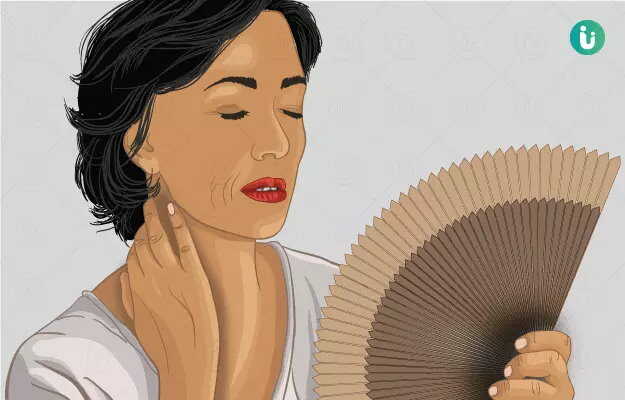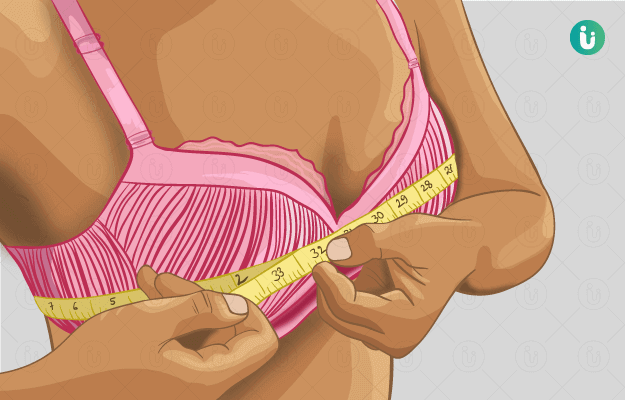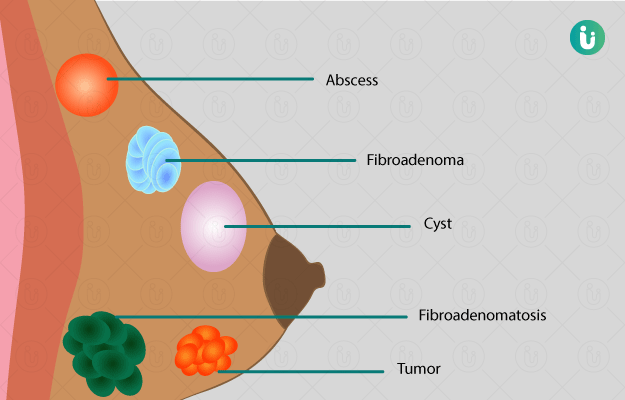Menopause is a normal part of ageing wherein a woman completely stops having her period. It usually happens sometime between the ages of 45 and 50 (typically around 46.2 years in India) due to a reduction in estrogen levels in the body.
However, some women experience premature or early menopause. This could be for a number of reasons:
- Removal of ovaries (oophorectomy)
- Removal of the uterus (hysterectomy)
- Some treatments such as chemotherapy
- Certain autoimmune diseases like lupus and rheumatoid arthritis
- Genetics or a family history of early menopause
- Health conditions like Turner syndrome or epilepsy
- Smoking
- Being too slim: estrogen gets stored in fat and very thin women may have low estrogen, to begin with
- Rarely, infections like tuberculosis, malaria or mumps may also trigger early menopause
Premature menopause means hitting menopause before the age of 40, and early menopause is the cessation of periods before 45 years.
Estrogen has a protective effect on the bones and heart. Recent research has shown that women who hit menopause before 40 are twice as likely to develop multiple health conditions by the time they are 60, compared with those who are 50-51 years old at the time of menopause.
The low estrogen levels during premature menopause, early menopause or menopause may also lead to discomforts such as hot flashes and vaginal dryness. They also lead to bone loss and weight gain. In women with thyroid problems, the symptoms of premature and early menopause or menopause may be worse.
There is no treatment necessary for menopause since it is a natural process. Hormone replacement therapy, cognitive behavioural therapy, estrogen creams, and lubricants are sometimes given to manage symptoms if they interfere with everyday life. In women experiencing premature menopause, doctors typically advise hormonal replacement therapy to reduce the risks to their bone health and heart.
Read more: Period problems
- Premature and early menopause age
- Premature and early menopause signs
- Premature and early menopause causes
- Premature and early menopause side effects
- Premature and early menopause treatment and tips
Premature and early menopause age
Women typically menopause between 45 years and 55 years of age. Research shows that Indian women typically menopause around 46.2 years, give or take 4.9 years. By comparison, Caucasian women typically menopause around 51 years of age.
Early menopause is hitting menopause between 40 and 45 years and premature menopause means cessation of normal periods before the age of 40. A 2016 research by the Institute for Social and Economic Change (ISEC) in Bengaluru showed that 4% of Indian women menopause aged 29-34 years and 8% between 35 years and 39 years of age.
Premature and early menopause signs
The signs of menopause and early or premature menopause overlap to a large degree. The following are some of the symptoms of early or premature menopause:
- Irregular periods: If you have always had a fairly regular cycle, then irregular periods may be a sign that your body is starting to experience perimenopause. You may start to bleed more or less. If your consecutive menstrual cycles start moving by more than seven days, it shows early menopause transition. Skipping more than two periods points towards a later stage of transition towards menopause. (Read more: Abnormal uterine bleeding)
As per the National Institute of Aging, US, even though changes in menstruation are normal, you should consult your doctor if you notice symptoms like heavy bleeding, spotting, periods lasting more than a week and if your periods start suddenly after being absent for a year. - Hot flashes and night sweats: Hot flashes are one of the most known symptoms of menopause and early/premature menopause. Changing hormone levels or changes in the thermoregulatory centres in the brain are suggested to be the possible cause of hot flashes and for some women. Women experiencing hot flashes have a sudden feeling of heat, usually in the upper parts of their body including the neck, face and head. They may sweat profusely and have a slightly higher core temperature. These symptoms may show up for 30 seconds to 5-10 minutes once in a day or week, several times a day or several times an hour. Night sweats is the term used to describe hot flashes that happen at night—they typically leave the person drenched in their sweat during sleep, hence the name. Hot flashes may continue for many years past menopause.
- Difficulty sleeping: Women may sleep late or wake up early. Night sweats also cause insomnia and make it difficult to get a good night’s sleep.
- Vaginal atrophy and related symptoms: Low estrogen may cause the mucous membrane (lining) of the vagina to become thin, dry, and less elastic. As a result women notice itching, irritation and pain during sex.
- Bladder problems: These include urinary incontinence, frequent infections of the urinary tract or bladder infections, dysuria (painful urination), and urgent need to urinate.
- Low sex drive: Though a woman can no longer become pregnant after menopause, the reduction in estrogen levels contributes to a low sex drive. Even if you don’t notice your sex drive dipping by a lot, you will still be prone to STDs if you have multiple sex partners or if you have sex with someone who has more partners.
- Anxiety or mood disturbance: The exact cause of mood disturbances during menopause is not really known. Experts suggest that this may be due to general anxieties of life rather than hormonal changes.
- Other symptoms: Some other symptoms associated with menopause include reduced bone density, loss of muscle mass, increase in body fat, muscle stiffness and joint pain, poor concentration, and memory loss.
In the postmenopausal period, symptoms like hot flashes and night sweats slowly decrease though they may continue for decades still.
Premature and early menopause causes
There is a bit of confusion when it comes to the terms "premature menopause" and "primary ovarian insufficiency". Some use the terms interchangeably, while some say that the two are different. Both terms are used to talk about menopause before the age of 40. However, as per the US National Library of Medicine, women with primary ovarian insufficiency can still get pregnant as they do menstruate occasionally. Regardless, the following same causes are listed for both the conditions:
- Most cases of early menopause or primary ovarian insufficiency are idiopathic—they have no known cause.
- Genetic conditions like Turner syndrome, fragile X syndrome, galactosaemia may cause early or premature menopause as well as primary ovarian insufficiency
- Autoimmune diseases like lupus, Crohn’s disease and rheumatoid arthritis are linked with both
- Cigarette smoking
- Viral infections like cytomegalovirus infection are also thought to cause premature menopause in some women
- Induced menopause: Induced menopause occurs due to a surgery involving removal of ovaries or uterus or as a side effect of radiotherapy and chemotherapy. Menopause caused due to chemotherapy or drugs can revert a while after the therapy is stopped.
What happens in a normal menstrual cycle
As early menopause and premature menopause are defined as the untimely cessation (or stopping) of the normal menstrual cycle, here’s a quick look at exactly what happens in a normal cycle:
Women are born with millions of ovarian follicles inside their ovaries. After puberty, one egg is released from either ovary every month during the menstrual cycle. The menstrual cycle has the following phases:
- Follicular phase
- Ovulation
- Luteal phase
- Menstruation
In the follicular phase, follicle-stimulating hormone (FSH) and luteinizing hormone (LH), two hormones released from the pituitary gland (in the brain) promote the maturation of ovarian follicles. LH increases the production of estradiol (a type of estrogen). Estradiol reduces the levels of FSH and LH both, but the decrease in FSH is more pronounced.
In the ovulation phase, estradiol levels reach their peak. This causes a surge in LH levels, which, in turn, promotes the breakdown of the outer wall of the ovarian follicle. This helps to release the egg from the ovary in a process known as ovulation. The levels of progesterone, another important female hormone, also start to increase in the ovulation phase.
In the luteal phase, the follicle (what’s left after the egg is released) itself gets converted into something called corpus luteum and starts secreting progesterone. Progesterone starts to prepare the uterus for a possible pregnancy. This includes increasing blood circulation in the uterus wall and thickening of the wall itself. In case the pregnancy does not happen, estrogen and progesterone levels reduce, and the corpus luteum degenerates and gets converted into a corpus albicans.
Menstruation starts at this point, where the uterus sheds its thick wall. Healthy women may menstruate 450-500 times in their life. However, this is cut short in women who menopause early or prematurely.
Natural menopause is a gradual process that occurs over a period of time. It has stages:
-
Pre-menopause can set in up to 10 years before menopause. During this stage, there is a hormonal shift but this shift is seldom felt or seen or felt as symptoms.
-
Perimenopause or the transition towards menopause can last for three to four years. For some women, perimenopause can also occur only for a few months. This is the stage just before menopause. During this period, the ovaries gradually reduce their response to the FSH and LH hormones, leading to a shorter follicular phase, reduced ovulation and less progesterone. Estrogen levels also decrease gradually as perimenopause progresses. Women may start to experience irregular periods and menopause symptoms like hot flashes during perimenopause.
Over time, the total number of viable follicles reduce and the remaining follicles stop responding to the hormones. Menopause is the term given to the point when a woman has not menstruated for 12 consecutive months.
Premature or early menopause may follow the same stages or it may occur suddenly, especially if it is brought on by surgery.
Premature and early menopause side effects
There are advantages and risks associated with both early menopause and late menopause.
- Early menopause can reduce the risk for some types of cancer; for example, breast cancer. On the other hand, women who go through early menopause and premature menopause are at higher risk of neurological problems like dementia, psychological distress, anxiety and sleeping problems, heart problems, lower bone density, osteoporotic fractures and early-onset osteoporosis, poorer sexual well-being and early death. Research has also linked health issues such as palpitations, constipation, pain, stiffness, osteoporosis and musculoskeletal disease with induced early menopause. The word “induced” is used to indicate early or premature menopause brought on by surgery.
- Late menopause provides prolonged protective effects of estrogen which promotes good (high-density lipoprotein) cholesterol and reduces bad (low-density lipoprotein) cholesterol in the body, and reduces the risk of heart disease in women who are still menstruating. On the other hand, it increases the risk of some types of cancer like breast cancer and ovarian cancer.
Premature and early menopause treatment and tips
Premature menopause is typically treated with hormone replacement therapy for menopause. This is important because the advantages of taking hormonal therapy outweigh the risk in younger women who menopause.
However, not all women need treatment for early menopause.
That said, symptomatic treatment can be given to those who have particularly bothersome symptoms. Treatment of early menopause and menopause includes lifestyle modifications and medicines. Some also use alternative remedies. Let us have a look at all these treatment methods:
- Lifestyle modifications: The following lifestyle modifications are suggested for various symptoms of menopause, early menopause and premature menopause:
- Hot flashes: Healthy diet, regular workout, breathing exercises, wearing light and comfortable clothes, using fans or air-conditioning or staying in a cooler environment whenever possible, staying away from any triggers including spicy foods, extreme emotions and bright light.
- Night sweats: Using an ice pack under the pillow and turning the pillow over in the middle of the night to keep yourself cool, drinking cold water, using many layers of bedsheets which you can change over the night can help.
- Vaginal dryness and sexual discomfort: Regular intercourse can keep up the blood flow to the vagina. Use water-based lubricants to manage vaginal dryness. Prescribed vaginal moisturisers are said to be better than lubricants, though. Apart from reducing dryness and vaginal itching, they help maintain vaginal pH.
- Urinary incontinence: Kegel exercises are a good way to manage and reduce urinary incontinence. Make sure to take enough water throughout the day and avoid drinking caffeinated beverages as they may irritate the bladder.
- Difficulty sleeping: Having a good sleep schedule may help you with sleeping difficulties over time. Avoid using your phone or a screen right before bedtime and do not take caffeine at night. You can also try drinking milk at night, using relaxation techniques or relaxing music to help you fall asleep.
- Mood swings: Regular exercise, yoga and tai chi are some ways to relieve stress and manage mood swings.
- Weak bones: Vitamin D supplements along with calcium, healthy diet and exercise and spending some time in sunlight may help maintain bone strength. Make sure to talk to a doctor before taking any kinds of supplements.
- Alternative treatments: Several alternative therapies like mindfulness and acupuncture are said to be helpful in relieving some of the symptoms of menopause. Herbs including black cohosh, red clover, and evening primrose oil are used by some women for relieving hot flashes. Ginseng is suggested to be helpful in reducing mood swings and sleep disturbances and kava for anxiety. However, more studies are needed to confirm the benefits of most herbs in the management of menopausal symptoms.
It is important to note that not all herbs suit every person. Some herbs interact (increase or decrease) the effects of medications. They may also worsen the symptoms of certain health conditions. For example, herbs with anticoagulant properties may increase bleeding problems for those with coagulopathy (difficulty clotting).
It is always wise to talk to a healthcare practitioner before taking any herb or alternative medicine. - Medicines: Various medicines are prescribed off-the-label for the management of early menopause and menopause symptoms. These include:
- Gabapentin: Gabapentin is a drug used to control seizures. It is sometimes given for reducing the frequency and intensity of hot flashes. It also helps improve sleep quality. Nausea, dizziness, fatigue and weight gain are some side effects of this drug.
- Clonidine: Clonidine is a medication that is normally used to lower blood pressure. It is also used (though less commonly) to relieve hot flashes. Low blood pressure, dry mouth and fatigue are some side effects of this medication.
- Antidepressants: These drugs are helpful in reducing anxiety, mood swings and irritation.
- Paroxetine: Paroxetine is a serotonin reuptake inhibitor that was approved by the US Food and Drug Administration (FDA) in the year 2013 for the treatment of hot flashes in menopause. Serotonin reuptake inhibitors are widely used for the treatment of depression. These drugs increase brain serotonin levels—serotonin levels in the brain tend to be low in depression. Experts have proposed two mechanisms through which serotonin reuptake inhibitors work. These include reducing blood flow to skin and lowering the core body temperature by countering skin vasodilation during hot flashes and central vasodilation due to narrowing of the thermoregulatory zone. That is, the medicine narrows certain blood vessels to cool the body down.
- Duavee: This is a mixture of estrogen and bazedoxifene that was approved in the year 2013 by the FDA for the treatment of hot flashes in postmenopausal women with a uterus. It also prevents osteoporosis. Bazedoxifene functions in a similar way to progestin (synthetic progesterone).
- Ospemifene: This is an estrogen agonist/antagonist that was approved by the US FDA in 2013 for the treatment of pain during sex (dyspareunia) in postmenopausal women.
- Prasterone: Prasterone is yet another FDA-approved drug for the treatment of postmenopausal dyspareunia.
- Medicines like raloxifene and calcitonin are prescribed to treat osteoporosis
- Birth control pills: In the perimenopausal period, birth control pills are sometimes suggested for managing early menopause and menopause symptoms. These pills can be taken in the form of a skin patch or vaginal ring. However, these pills can increase your risk for high blood pressure and blood clots. Do not take birth control pills without talking to your doctor first.
- Menopausal hormone therapy: Menopausal hormone therapy or hormone replacement therapy was once considered to be highly effective in the management of menopause symptoms. This therapy includes the administration of hormones that a woman lacks during menopause—estrogen and progesterone.
Estrogen and progesterone are usually given together. However, estrogen-only treatment may be given to women who have had their uterus removed. Hormone replacement therapy may or may not be given in cycles. Tablets, gels, vaginal rings, skin patches, and vaginal creams are some ways to administer hormone therapy. Women with premature menopause are typically given this therapy, to offset the disadvantages of hitting menopause so early in life.
Keep in mind, though, that this therapy can have side effects: over the course of time several research studies have shown that this therapy may increase the risk of stroke and heart attack, and breast cancer, endometrial cancer and ovarian cancer. Hormone replacement therapy also has side effects like nausea, bloating, bleeding, and mood changes. Talk to your doctor about the potential benefits and side effects for you before starting the therapy.
Find Obstetrician and Gynaecologist in cities
- Obstetrician and Gynaecologist in Bangalore
- Obstetrician and Gynaecologist in Mumbai
- Obstetrician and Gynaecologist in Ghaziabad
- Obstetrician and Gynaecologist in Chennai
- Obstetrician and Gynaecologist in Pune
- Obstetrician and Gynaecologist in Delhi
- Obstetrician and Gynaecologist in Hyderabad
- Obstetrician and Gynaecologist in New Delhi
- Obstetrician and Gynaecologist in Gwalior
- Obstetrician and Gynaecologist in Gurgaon
References
- Ahuja M. Age of menopause and determinants of menopause age: A PAN India survey by IMS. Journal of Midlife Health, July-September 2016; 7(3): 126-131. PMID: 27721640.
- Xiaolin Xu, Jones M. and Mishra G.D. Age at natural menopause and development of chronic conditions and multimorbidity: results from an Australian prospective cohort. Human Reproduction, January 2020; 35(1): 203–211.
- National Institute of Ageing [Internet]. National Institute of Health. US Department of Health and Human Services; What Are the Signs and Symptoms of Menopause?
- Cleveland Clinic [Internet]. Ohio. US; Menopause, Perimenopause and Postmenopause
- Gallagher JC. Effect of early menopause on bone mineral density and fractures. Menopause. 2007;14(3 Pt 2):567-571. PMID: 17476146.
- Shuster LT, Rhodes DJ, Gostout BS, Grossardt BR, Rocca WA. Premature menopause or early menopause: long-term health consequences. Maturitas. 2010 Feb;65(2):161-6. PMID: 19733988.
- Merck Manual Consumer Version [Internet]. Kenilworth (NJ): Merck & Co. Inc.; c2020. Female Reproductive Endocrinology
- Harvard Health Publishing: Harvard Medical School [Internet]. Harvard University, Cambridge. Massachusetts. USA; Perimenopause: Rocky road to menopause
- MedlinePlus Medical Encyclopedia [Internet]. US National Library of Medicine. Bethesda. Maryland. USA; Primary Ovarian Insufficiency
- Better health channel. Department of Health and Human Services [internet]. State government of Victoria. Australia; Premature and early menopause
- Nelson Lawrence M. Primary Ovarian Insufficiency. N Engl J Med. 2009 Feb 5; 360(6): 606–614. PMID: 19196677.
- The North American Menopause Society [Internet]. Ohio. US; Instant Help for Induced Menopause
- National Health Service [Internet]. UK; Menopause: Treatment
- Orleans Ronald J, et al. FDA Approval of Paroxetine for Menopausal Hot Flushes. Obstetrical & Gynecological Survey. 2014 Oct; 69(10): 590-591.
- Chu A, Wadhwa R. Selective Serotonin Reuptake Inhibitors. [Updated 2020 May 15]. In: StatPearls [Internet]. Treasure Island (FL): StatPearls Publishing; 2020 Jan
- Carroll Dana G, Lisenby Katelin M, Carter Tracy L. Critical appraisal of paroxetine for the treatment of vasomotor symptoms. Int J Womens Health. 2015; 7: 615–624. PMID: 26124682.
- Eunice Kennedy Shriver National Institute of Child Health and Human Development [Internet]. National Institute of Health. US Department of Health and Human Services; What are the treatments for other symptoms of menopause?




































